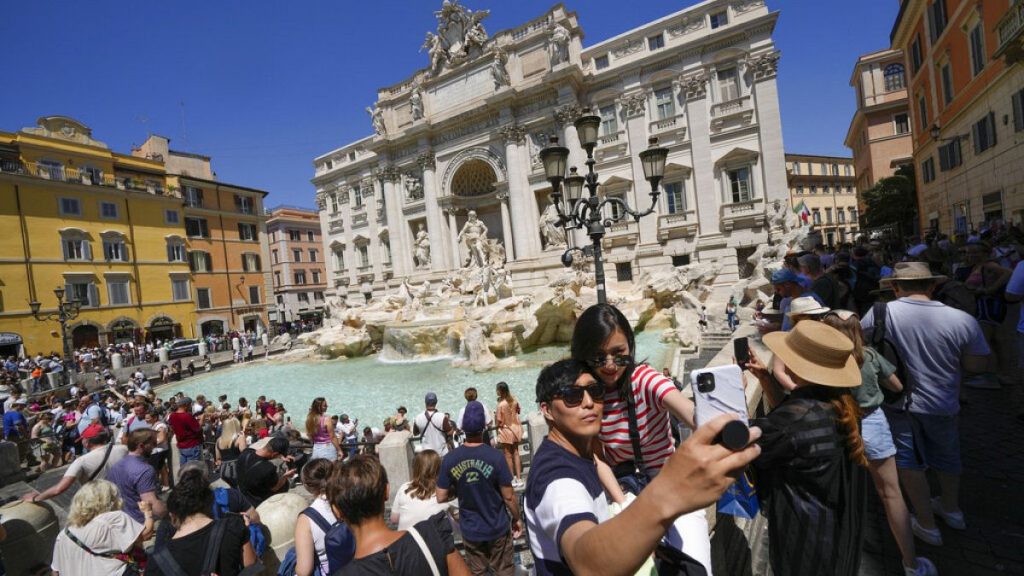Tourism in Italy, especially in Rome, has seen a significant resurgence since the COVID-19 lockdown days, with record-high visitors flocking to the Eternal City. The upcoming Catholic Church’s Jubilee is expected to bring even more visitors in the next year. However, the increasing number of tourists has raised concerns among residents, with many feeling that overtourism has become a burden on the city’s life rather than a benefit. The proposal to charge a fee to visit iconic landmarks like the Trevi Fountain has sparked controversy, with some residents feeling that the city’s unique character is being lost amidst the influx of tourists.
The impact of overtourism in Rome is evident in overcrowded streets, skyrocketing rent prices driven by holiday rentals, concerns about cleanliness, and changes in local businesses to cater to tourists rather than locals. The city’s identity seems to be shifting to accommodate tourists, leading to a loss of the small rituals that make up Italian daily life. With the expected influx of 32 million visitors for the Jubilee year, Rome is struggling to handle the sheer mass of individuals, leading to concerns about how the city will cope with the event.
The Catholic Church’s Jubilee, set to begin in 2024, is expected to bring 32 million pilgrims to Rome, sparking a mammoth urban renovation and beautification program. However, the impact of the event on local residents has been significant, with housing prices reaching astronomical heights, forcing many long-time residents out of their homes to make way for holiday rentals. The city’s housing market has seen a dramatic shift, with short-term rentals increasing by 37.3% and average rent prices far exceeding the average monthly salary.
Some residents and experts have called for action to address the overtourism issue in Rome, suggesting measures such as closing thousands of Airbnb apartments in the city center. However, Italy’s tourism minister has taken a different stance, stating that growth is not the problem but rather how growth is managed. The ministry’s policies focus on diversifying tourist destinations and promoting sustainable practices, with a significant budget allocated to strengthening major cultural destinations like Rome. However, concerns remain about the displacement of citizens and the long-term impact of overtourism on the city’s identity.
Overall, the overtourism issue in Rome presents both challenges and opportunities for the city and its residents. While residents lament the loss of their city’s identity and rising rent prices, there are efforts being made to manage the influx of tourists and promote sustainable tourism practices. As Rome prepares for the upcoming Jubilee event, the city’s residents are left to ponder what will be left of their city once the event is over and how they can address the ongoing challenges of overtourism.









